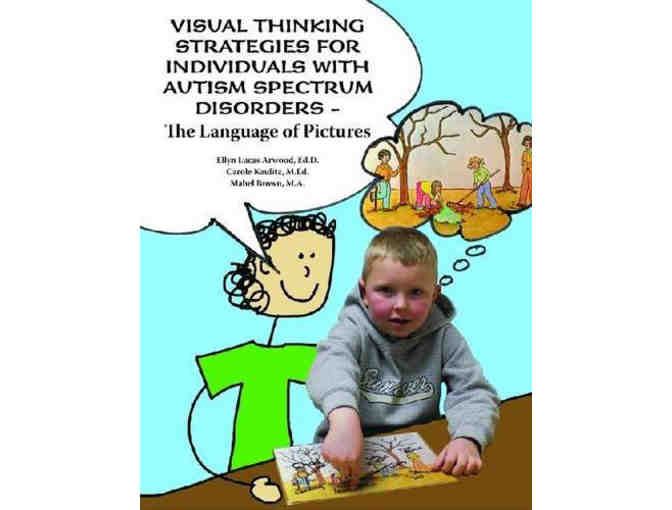Wish List Registry
WISH LIST REGISTRY: Visual Thinking Strategies for Individuals W/ Autism Spectrum Disorde
- Item Number
- 171
- Estimated Value
- 25 USD
- Buy Now Price
- 25 USD
- Not Sold
Item Description
Help St. Elizabeth School Implement its SOCIAL THINKING Program with these WISH LIST REGISTRY Items!
Through the SES Bull & Oyster Roast's online auction, SES donors can “buy” items for the school, just like you might for a wedding or baby registry! Items, such as the one described below, help students during therapy sessions, in the classroom, and beyond. This year, our Wish List Registry is filled with curriculum notebooks, books, posters, and other items needed to help SES adopt a SOCIAL THINKING program school-wide. Social Thinking is an expansion of PBIS (Positive Behavior Interventions and Supports) and teaches students how their behavior directly impacts those around them. In other words, it teaches them to think beyond themselves and gives them a deeper understanding of those around them.
Visual Thinking Strategies For Individuals With Autism Spectrum Disorders
by Ellyn Lucas Arwood, Ed.D.; Carole Kaulitz, M.Ed.; and Mabel Brown, M.A.
Photographs, checklists, line drawings, cartoons, flowcharts, stick figures and more are used as supports for individuals on the autism spectrum who tend to think and learn visually. However, not all visuals are created equal and, therefore, visuals don't all work equally well. This companion to Learning With a Visual Brain in an Auditory World helps the reader understand how to match the developmental levels of pictures and visuals to the developmental level of the person looking at the visual. In this way, appropriate visuals provide the language development for children with autism spectrum disorders. Drawing from their experience with children and youth for decades, the authors also show how effective communication can help reduce the confusion and anxiety that often lead to behavioral outbursts.
St. Elizabeth School stores data...
Your support matters, so St. Elizabeth School would like to use your information to keep in touch about things that may matter to you. If you choose to hear from St. Elizabeth School, we may contact you in the future about our ongoing efforts.
Your privacy is important to us, so St. Elizabeth School will keep your personal data secure and St. Elizabeth School will not use it for marketing communications which you have not agreed to receive. At any time, you may withdraw consent by emailing Privacy@frontstream.com or by contacting our Privacy Officer. Please see our Privacy Policy found here PrivacyPolicy.


